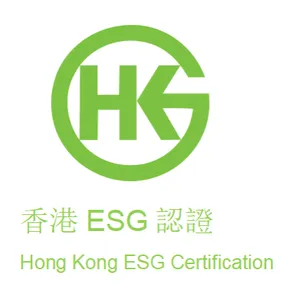United Nations ESG Certification


The ESG international standard was an international corporate standard promoted by the United Nations Environment Program in 2004. It has become the world’s internationally recognized standard for corporate management systems and management quality. ESG’s environment (Environmental), social responsibility (Social Responsibility) and corporate governance (Governance) ) is a set of single indicators that are different from the past financial review alone, and has been developed into a more comprehensive enterprise sustainable development assessment system. With the new demands of the globalization of the capital market, the capital market and investors pay more attention to the sustainable operation and development conditions of enterprises. The ESG certification system has become a standard for measuring and certifying good governance of international companies in governments, investment institutions, financial institutions, and even merchants and customers. Currently, ESG has become a mainstream corporate management concept in the world. More than 4,000 large institutions around the world have become United Nations responsible organizations. A signatory of the Principles of Investment (PRI), with assets under management reaching US$103 trillion. ESG certification brings higher quality evaluation and customer trust to companies and products, and greatly improves management policies and strategies to sustainable business development. Certification assists corporate boards of directors to review and evaluate ESG management and implementation, so that management can clearly understand ESG Relevant operating progress to cooperate with management supervision, foundation review, compliance with China Securities Regulatory Commission implementation standards and other regulatory work.
ESG Hong Kong Securities and Futures Commission (Code of Conduct for Fund Managers)
The Hong Kong Securities and Futures Commission has revised the Code of Conduct for Fund Managers for enterprises, requiring fund managers of collective investment schemes to consider climate-related risks in their investment and risk management processes and make appropriate disclosures to provide investors with climate risk information. There is strong demand and the regulations will cover four elements: governance, investment management, risk management and disclosure. Large funds have been implemented on August 20, 2022, and other funds will be implemented on November 20,
- According to the Securities and Futures Commission of Hong Kong, management companies of unit trusts and mutual funds are authorized by the Hong Kong Securities and Futures Commission to incorporate environmental, social and governance factors into their main corporate investment priorities and reflect ESG factors in investment objectives or strategies for environmental, social and governance funds. For information on recognized funds, stakeholder participation can take many different forms, not necessarily large-scale activities, such as daily contact with customers/suppliers/employees, or adding survey questions to the online product warranty registration form, etc., which are also stakeholder A form of initiation with participant participation. However, if the issuer conducts stakeholder engagement activities, it must make relevant disclosures describing the significant stakeholders identified and the stakeholder engagement process and results.